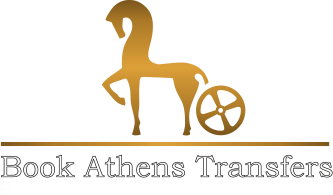Greek Mythology
Greek Mythology
Greek mythology is a vast collection of stories that shaped the religious, cultural, and philosophical landscape of ancient Greece. It consists of myths about gods, heroes, and the origins of the world, influencing literature, art, and modern storytelling.
The Creation of the World and the Titans
Greek mythology begins with the primordial gods who created the universe. According to legend, Chaos was the first entity, giving birth to Gaia (Earth), Uranus (Sky), and other primordial beings. From them came the mighty Titans, the predecessors of the Olympian gods. Cronus, the leader of the Titans, ruled until he was overthrown by his son Zeus, marking the rise of the Olympian gods.
The Olympian Gods
The Olympian gods, led by Zeus, were the central figures of Greek mythology. Each god had unique attributes and ruled over different aspects of life and nature:
Zeus – The king of the gods and ruler of the sky, known for his thunderbolt.
Hera – Queen of the gods, goddess of marriage and family.
Poseidon – God of the sea, earthquakes, and horses.
Athena – Goddess of wisdom, warfare, and strategy.
Apollo – God of the sun, music, and prophecy.
Artemis – Goddess of the hunt and wilderness.
Aphrodite – Goddess of love and beauty.
Ares – God of war and bloodshed.
Demeter – Goddess of agriculture and fertility.
Dionysus – God of wine, pleasure, and festivity.
Hermes – Messenger of the gods, god of trade and travelers.
Hephaestus – God of fire and craftsmanship.
Hades – Ruler of the underworld, though not considered an Olympian.
Heroes and Legendary Myths
Greek mythology is rich with heroic tales of mortals who performed extraordinary deeds. Some of the most famous myths include:
Heracles (Hercules) and the Twelve Labors – A legendary hero who completed twelve seemingly impossible tasks as punishment for his past crimes.
Theseus and the Minotaur – The story of a brave prince who ventured into the labyrinth to slay the monstrous Minotaur.
Perseus and Medusa – A hero who defeated the Gorgon Medusa and used her head as a powerful weapon.
Odysseus and the Odyssey – The epic tale of Odysseus’ long and perilous journey home after the Trojan War.
Jason and the Argonauts – A thrilling quest to retrieve the Golden Fleece.
The Underworld and Afterlife
Greek mythology also explored the concept of the afterlife, ruled by Hades. The underworld was divided into different realms:
Elysium – A paradise for the virtuous and heroic.
Tartarus – A deep abyss where the wicked suffered eternal punishment.
The Asphodel Meadows – A neutral place where ordinary souls resided.
Influence and Legacy
Greek mythology continues to shape modern culture, literature, and entertainment. From the names of planets and constellations to references in books, films, and philosophy, its impact is undeniable. The myths of ancient Greece serve as timeless narratives that explore themes of heroism, fate, and human nature.
Conclusion
Greek mythology continues to shape modern culture, literature, and entertainment. From the names of planets and constellations to references in books, films, and philosophy, its impact is undeniable. The myths of ancient Greece serve as timeless narratives that explore themes of heroism, fate, and human nature.
